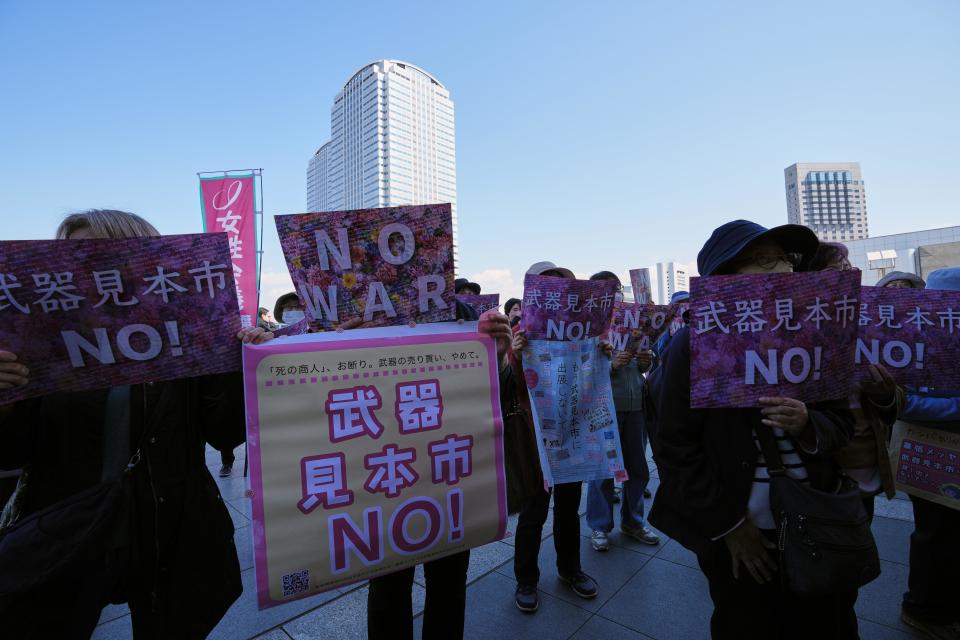Has China's aggression convinced Japan to abandon its pacifist roots?
Tokyo — President Biden was in Japan Thursday to join fellow G7 leaders in Hiroshima for a Friday summit that will see the world's biggest economic powers grapple with global issues, including China's huge military buildup in the Pacific.
Japan, America's biggest ally in the region, has already committed to doubling its national defense budget. That drew praise from the U.S. and marked a major departure from more than 75 years of foreign policy.
Japan's constitution was written in 1945 by American occupation authorities after WWII specifically to ensure the country never went to war again. Article 9 of that constitution bans Japan from settling international disputes by force. That posture is reflected in the formal name of Japan's military, which is still called the Self-Defense Forces. Those forces are permitted to defend the country, but not to engage in offensive action.
Recently, however, China's increasingly aggressive stance and military buildup, along with concern over the intentions of the Kim Jong Un regime in North Korea, have changed the context, and the mood.
Last August, during huge war games around Taiwan, China test-fired five missiles that landed in Japanese waters. Then in December, China sailed its sole aircraft carrier between two of Japan's southern islands.
As a result, there's now broad support in Japan for a more muscular military.
Naurushiga Michishita, a professor of defense policy in Tokyo, told CBS News the decision to dramatically increase Japan's defense spending "could have been much more controversial had it not been for China's massive military buildup, its coercive and sometimes even aggressive actions that it's taking in the South China Sea."
Japan hosted a defense and security show earlier this spring that attracted makers of every kind of military equipment – from reconnaissance robots to warplanes and the latest missiles. The event would have been unthinkable in pacifist Japan even a decade ago.
Ron Tryfus, who headed the Israeli delegation at the show, told CBS News that defense manufacturers in his country see Japan as a "market with great potential."
That potential lies in the huge projected increase in Japanese defense spending, which is set to double by 2027.
"This is a major, major change," Tryfus said. "This exhibition here, now in this event here, I think reflects the change."
Doubling its spending will give Japan the third-highest national defense budget in the in the world, and it will see billions of dollars flow to U.S. companies for weapons like Tomahawk missiles and F-35 fighter jets.
"Now people understand how serious it is," said Michishita, adding that the "potentially controversial shift in Japan's defense policy has so far been largely accepted by the Japanese public."
But it is a huge cultural shift.

Until now, Japan's Self-Defense Forces (SDF) have been better known for search and rescue services than combat. Military personnel have not been very well paid, either. Nor does a career in the SDF carry much social status in Japan.
The Self-Defense Forces have been investing in action-packed promotional videos to try to lure young recruits, so the massive investment in weapons is matched by a an increase in well-trained personnel.
But in spite of a pay raise, the campaign has failed to convince young Japanese to enlist in droves. The most recent recruiting drive aimed to sign up 10,000 new service members. It missed its target by half.
Sneak peek: A Stabbing in Colts Neck
Supreme Court sides with Twitter in case about terrorist use of social media platform

